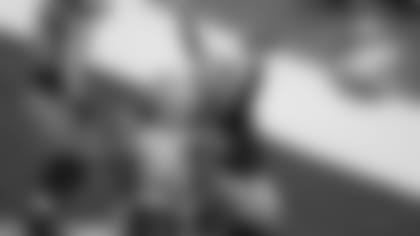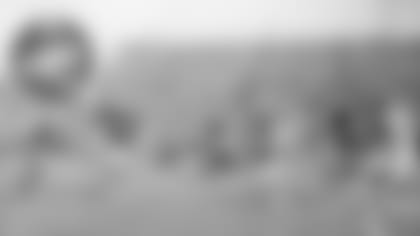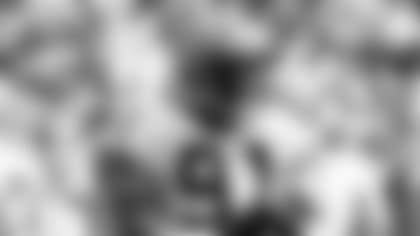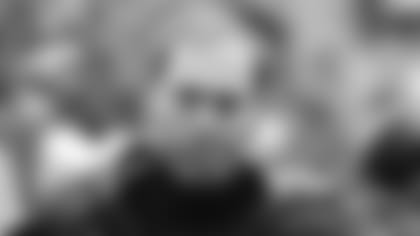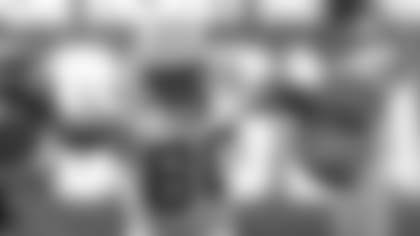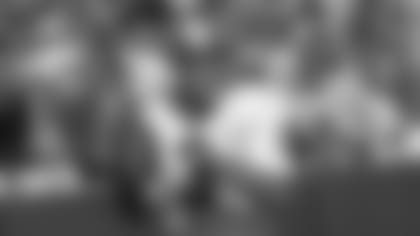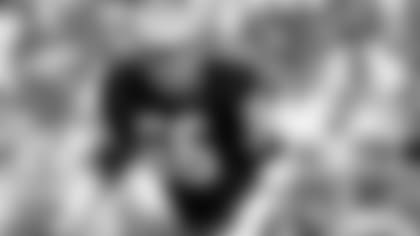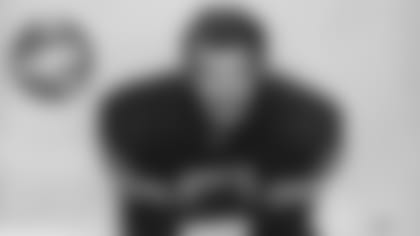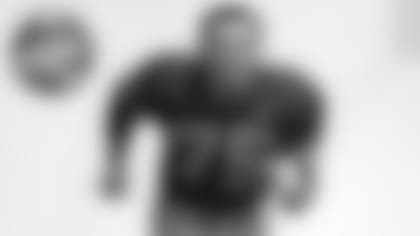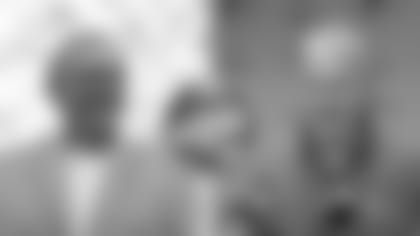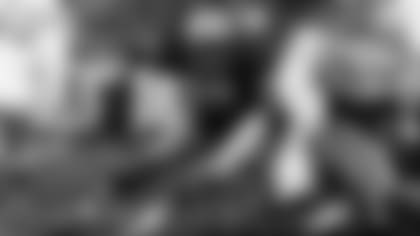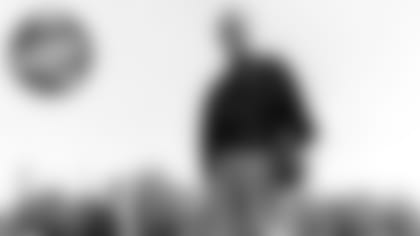Sunday's matchup between the Green Bay Packers and Seattle Seahawks is about as good as it gets in today's NFL and is worthy of all the hype it's receiving.
Not only is it a season opener that could have a bearing on who wins Super Bowl LII, it's one of the most historically alluring openers for a Packers franchise that is launching its 97th league season. The Seahawks have been in existence only since 1976, but they've become a 21st century league power. They have played in two Super Bowls in the last four years and won one, and have been to the playoffs five straight years and 11 of the last 14.
The Packers have not only been members of what is now the NFL since its second season and won a record 13 NFL championships, they've made the playoffs eight straight years, 19 of the last 24 and won two Super Bowls in the last 21 years.
Two years ago, I wrote about the Packers' five most important and memorable season openers. This is a list of the five best opening-day matchups in Packers history.
The 2015 list was a retrospective take on the outcomes of previous openers.
This is strictly a list of what on paper have been the Packers' most enticing first-game matchups based on the records of the two teams in the previous season and their recent finishes in both the final standings and postseason.1. Baltimore Colts at Packers, Sept. 10, 1966, Milwaukee County Stadium – In 1965, the Packers beat the Colts three times en route to winning the NFL championship. Over the previous seven years, the Packers and Colts had combined to win four NFL titles and six Western Conference championships. This was a special Saturday night nationally televised game that pitted what many believed were the NFL's two best teams, and, as it turned out, two future Pro Football Hall of Fame quarterbacks, Johnny Unitas and Bart Starr. In 1965, the Packers had rallied in the final three minutes of the second game of the season to edge the Colts, 20-17, on a 37-yard Zeke Bratkowski to Max McGee pass; and also prevailed 42-27 in the second-to-last game when Paul Hornung scored five touchdowns. When the two teams tied for the Western Conference crown with 10-3-1 records, the Packers won the playoff in sudden death, 13-10. In the '66 opener, the Packers had an easier time against the Colts, winning 24-3 as linebacker Lee Roy Caffey and cornerback Bob Jeter returned interceptions 52 and 46 yards in a span of 1 minute, 40 seconds late in the second quarter as the Packers took command, 14-0.2. Chicago Bears at Packers, Sept. 27, 1942, City Stadium – Back then any Packers-Bears game was big, but a high-stakes one could loom larger than the NFL Championship Game. Ten months earlier, in a playoff for the Western Division title, the Bears had beaten the Packers, 33-14, before a full house of 43,425 in Wrigley Field. That game was played a week after the bombing of Pearl Harbor. Two weeks after the attack, the Bears beat the New York Giants, 37-9, in the NFL title game before a Wrigley Field crowd of only 13,341. The Chicago Tribune surmised that Bears fans were apathetic about the league championship because they didn't think the Giants posed as much of a threat to the Bears as the Packers had and there was Christmas shopping to do, although it was 31 degrees warmer for the title game than it had been for the division playoff. Granted, a number of players had been called into service during the 10 months between the 1941 playoff and '42 opener, but nine of the Bears' 11 starters were the same. That number included their entire backfield of Sid Luckman, Bill Osmanski, Ray Nolting and Hugh Gallarneau. Plus, they had three future Pro Football Hall of Fame linemen: Joe Stydahar, Dan Fortmann and Bulldog Turner. War or no war, the Bears were still the "Monsters of the Midway," less than two years removed from their 73-0 romp over Washington in the 1940 NFL title game. In 1941, the Packers and Bears had split their regular-season games. Both teams finished 10-1 when the Packers upset the Bears, 16-14, in the final month of the season by stymieing their vaunted T-formation with a seven-man defensive line. In the 1942 opener, the Bears trailed at halftime and at the end of the third quarter before erupting for 17 points in the fourth quarter to win 44-28. The Bears completed the regular season unbeaten, 11-0, while the Packers finished 8-2-1.3. Bears at Packers, Sept. 13, 1964, Green Bay City Stadium (now Lambeau Field) –Vince Lombardi once said his 1963 team was his best ever, but it lost twice to the Bears and failed to win the Western Conference. The Bears finished 11-1-2, a half-game ahead of the 11-2-1 Packers. Thus, the Packers had revenge on their mind going into the 1964 opener and also were supremely confident following the return of Hornung, who had missed the 1963 season while under suspension for gambling. It was Hornung who made the difference, too, kicking three field goals, including a 52-yard free kick, and rushing for 77 yards in 15 carries as the Packers prevailed 23-12. "Old No. 5 kinda helps them," said Mike Ditka, who led the Bears with seven catches for 74 yards, including their lone touchdown. "He's one helluva football player." As it turned out, the Packers and Bears both had disappointing seasons. Green Bay finished 8-5-1, 3½ games behind champion Baltimore. The Bears plummeted to 5-9.4. Seattle at Packers, Sept. 10, 2017, Lambeau Field – Prognosticators seem to think the Packers and Seahawks are the teams to beat this season in the NFC. Seattle was 10-5-1 and won the NFC West last year. The Packers were 10-6 and won the NFC North. Although the Packers breezed to a 38-10 victory last year at Lambeau, the two teams also have had a recent history of providing good theater. Lest we forget the "Fail Mary" game in 2012 and the beyond-belief reversal of fortunes in the 2014 playoffs.
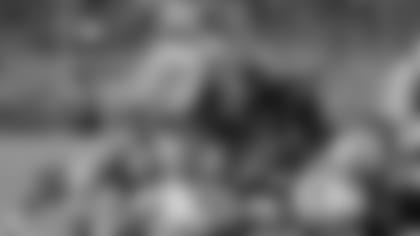
5. New Orleans at Packers, Sept. 8, 2011, Lambeau Field –This was the first and so far only time the Packers hosted the NFL Kickoff Game as defending Super Bowl champions. The Kickoff Game has been played on Thursday night and broadcast to a national audience since 2004 – except for one year when it was moved to Wednesday – and the hype might have been unmatched for a regular-season game in Lambeau. It also pitted the past two Super Bowl champions, which added to its drawing power. Then again, the Saints had finished second in their division in 2010 and didn't have a winning record in the two seasons before they won Super Bowl XLIV. But there was no need for pause considering the game's outcome, a 42-34 Packers' victory secured on the final play, and the final standings that year – the Packers finished 15-1; the Saints, 13-3; and both won their division. That's why it was chosen over the 1961 Packers-Detroit game at Milwaukee.




